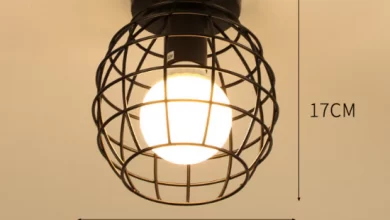Smart Contracts in Blockchain Development Companies - Smart Contract Development
Blockchain Development Companies
In order to handle agreements and transactions in the digital era, it is more important than ever to have safe, transparent, and effective solutions. Smart contracts are digital contracts that can be executed on their own and check and enforce contract fulfillment without the need for middlemen.
Blockchain technology forms the core of these innovative technologies, giving smart contracts the transparency and trustless execution they require.
This blog will examine the technological underpinnings and practical applications of blockchain technology in developing smart contracts. We will also look at this potent technology’s future and discuss the difficulties and restrictions that come with blockchain-based smart contracts.
An Understanding of Blockchain Technology
Blockchain technology is essentially a decentralized digital ledger that keeps track of transactions across a computer network. Its distinctive architecture provides a number of benefits over conventional databases, such as:
Fundamentals of Blockchain Technology
- Decentralization: By dispersing power across a network of nodes, blockchain does away with the requirement for a central authority.
- Immutability: It is nearly impossible to change or tamper with data once it is stored on a blockchain.
- Safety: Blockchain uses cutting-edge cryptographic methods to guarantee data integrity.
- Consensus: To verify transactions and preserve the ledger’s integrity, blockchain networks employ consensus techniques.
Practical Use Cases: Blockchain-powered Smart Contracts:
- Banking and finance: Lending, securities trading, clearing and settlement, and other financial operations may all be made more efficient via smart contracts. Additionally, they may facilitate the development of decentralized finance (DeFi) platforms, which function as middlemen-free financial services providers.
- Insurance: Smart contracts built on blockchain technology have the potential to streamline claims handling, lower fraud, and boost productivity in the insurance sector. They may also make it possible to develop parametric insurance plans, which make automated payouts in response to certain triggers.
- Supply chain management: By automating tasks like product monitoring, inventory management, and payment processing, smart contracts may increase the supply chain management’s traceability, transparency, and efficiency.
- Real estate: Smart contracts have the potential to streamline many real estate transactions, such as title transfers, rental agreements, and property registration, all while decreasing the necessity for middlemen.
- Healthcare: In the healthcare sector, smart contracts may be used to verify pharmaceutical items more easily, process insurance claims automatically, and securely handle and exchange patient data.
- Government and public services: Smart contracts may be used by governments to automate several public services, including identity management, voting systems, and social benefit distribution.
- Intellectual property and digital content: Smart contracts may be used to automate royalty payments to authors of digital material, including software, music, and videos, as well as to manage intellectual property rights.
Blockchain Technology and Smart Contracts’ Future
- Improvements in technology
- Layer 2 Solutions: Layer 2 solutions—such as state channels, rollups, and sidechains—are being developed to solve scalability issues. They allow for faster and less expensive transactions while preserving security and decentralization.
- Interoperability protocols: The development of interoperability protocols like as Polkadot, Cosmos, and Interledger aims to enable smooth communication and value transfer between various blockchain networks.
- Formal verification: To strengthen the security and dependability of smart contracts, formal verification techniques are being used to mathematically validate the accuracy of the contract code.
- New developments and trends
- Decentralized finance (DeFi): One of the most exciting uses of smart contracts is DeFi, which makes it possible to create decentralized financial services and products without the need for conventional middlemen. It is anticipated that this industry will keep expanding quickly and spur further innovation.
- Asset tokenization: Using blockchain-based smart contracts, tokenization allows for the fractional ownership and easy transfer of a variety of assets, including commodities, real estate, and artwork. It is anticipated that this tendency will persist and spread to new asset classes.
- NFTs, or non-fungible tokens: NFTs, or unique digital assets, are becoming more and more common in fields like virtual real estate, collectibles, and digital art. A key component of the development, administration, and transfer of NFTs is smart contracts.
- Decentralized autonomous organizations (DAOs): DAOs are organizations where smart contracts, as opposed to conventional management structures, are in charge. As smart contract technology advances, more DAOs could appear and upend established organizational structures.
- Regulatory developments
- Defining smart contracts’ legal status: As smart contracts become more widely used, authorities and legislators will have to clarify their legal standing and capacity to be enforced under current legal structures.
- Initiatives toward standardization: The promotion of the broad adoption and integration of smart contracts across industries will depend heavily on standardization initiatives, such as the creation of common frameworks and best practices.
- Increased adoption and integration: Expect a rise in the use and integration of smart contracts across a range of businesses as they develop and the benefits of using them are more broadly acknowledged. This will propel the creation of fresh apps, use cases, and commercial strategies centered on smart contracts
.Cross-jurisdictional collaboration: To establish harmonized regulatory frameworks that enable the worldwide deployment of blockchain-based smart contracts and promote innovation in the sector, cross-jurisdictional cooperation will be required.
Conclusion
Blockchain technology has significantly aided the development of smart contracts, enabling decentralized, transparent, and trustless execution of contractual agreements. These contracts have potential applications in government services, real estate, healthcare, insurance, finance, and supply chain management. However, challenges like scalability, privacy, legal uncertainty, technological complexity, and the oracle problem need to be addressed. Despite these challenges, the future of smart contracts and blockchain technology is bright due to continued technological advancements and legislative reforms.


